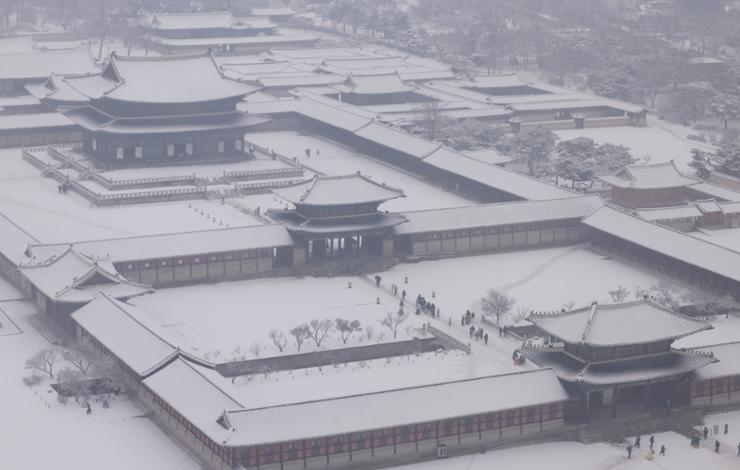
Seoul: South Korea’s wider Seoul area and the eastern Gangwon region experienced significant snowfall on Sunday, leading authorities to elevate weather alerts and prepare for potential disruptions. Fortunately, no major damage has been reported.
As of noon, some parts of Seoul had received approximately 6 centimeters of snow, prompting the mobilization of about 5,245 personnel and 1,439 pieces of equipment for road clearing, according to the Seoul metropolitan government. The heavy snow alert was lifted at 12:30 p.m. with no major incidents reported.
In Gyeonggi Province, which encircles Seoul, northern cities saw around 10 cm of snow, while the border town of Paju recorded about 12 cm by 3 p.m. The heavy snow alerts in the province were also lifted after 1 p.m.
In Gangwon Province, officials closed off entrances to 25 trekking routes in national parks for safety reasons, and a morning flight from Wonju to the resort island of Jeju was canceled.
By 3:30 p.m., most heavy snow alerts across the country had been lifted, except for mountainous areas in Jeju, as reported by the Korea Meteorological Administration (KMA). The KMA had earlier predicted that Seoul could receive up to 8 centimeters of snow through Monday, with Gyeonggi and Gangwon provinces expecting up to 10 cm in the same timeframe.
The Ministry of Interior and Safety activated the Central Disaster and Safety Countermeasure Headquarters at Level 1, raising the crisis alert from “attention” to “caution” as of 8 a.m. Acting Interior Minister Ko Ki-dong instructed relevant agencies to deploy all personnel and equipment to minimize the impact of the heavy snowfall and to implement measures to alleviate public inconvenience, such as traffic congestion.
In 2024, Seoul experienced a record snowfall in November, with over 16 cm accumulating, marking the highest amount since modern weather records began in October 1907, according to the KMA. This surpassed the previous November record of 12.4 cm set on November 28, 1972.
